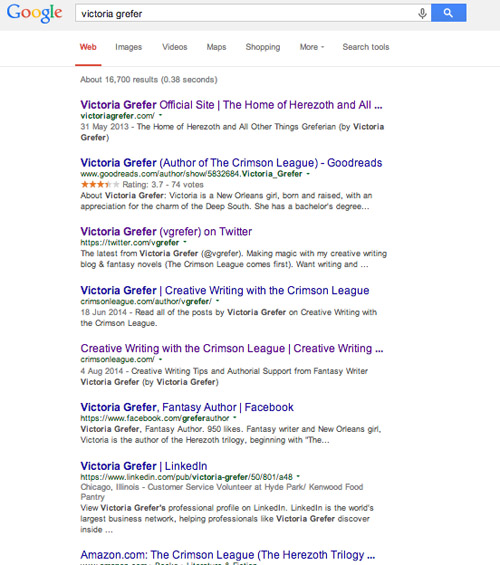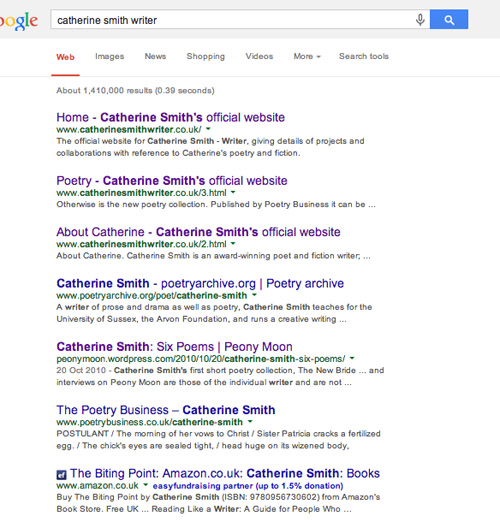There are some simple steps you can take to help get your blog, website or profile found on the web. In part 1 we looked at what search engines do, how to find your keywords & how and where to use them.
But finding and using relevant keywords (sometimes referred to as ‘on-page SEO’) is only one part of the process. As well as relevance (as determined by keywords), search engines also look for recency and authority.
Update, update, update
The web is choked with old material. Some of this is still pertinent today. But there are long-abandoned websites, obsolete links and ancient blog posts galore. In Google’s worldview, new is best. The more recent the material the better. It’s a rather crude measure, but the principle is that anything posted on blogs five years ago will have been superseded by more up-to-date information. And certainly when it comes to online shopping, news, sport, the economy, weather and a lot of the day-to-day stuff, last week is old news.
If your blog, website or profile pages hasn’t been updated for a while, search engines will deliver more recent pages in their results, and yours may slide in the rankings. That’s one reason why a blog (rather than, or in addition to, a static website) is a good idea. As long as you post new material to it regularly (more than once a month).
Some business bloggers will tell you that it pays to post something every day, or certainly every week – that the more regularly and frequently you post, the more likely you are to see your search rankings improve, which will bring more visitors to your pages, more subscriptions/comments, the lot. This can happen – although it’s not everyone’s experience – but if writing is your primary business, rather than pro blogging, you would probably have to think very hard about making that kind of time commitment to blogging.
It’s not who you know, it’s who knows you
To stand out in some way on the web, you need an authoritative presence. Authority, as measured by search engines, is demonstrated by a number of things, but it basically boils down to who knows you. One indicator is the quality of inbound links. There are websites and bloggers with proven authority – think BBC, national newspapers, Huffington Post, Mumsnet, Richard & Judy and so forth – and if they link to you, it’s seen as an indication of your authority.
You might reasonably be thinking ‘oh sure, I’ll just go and get my book reviewed at the Guardian – how easy is that?’ OK so it may not be so simple. But there are opportunities to be had once you start looking: commenting on articles, answering calls for reader stories, taking part in online workshops or discussions, guest blogging, submitting your blog or site to a directory.
Start with the ‘low hanging fruit’ – if you’re a member of a professional association, make sure your blog or website (or Facebook Page, if that’s your primary hub) is listed (with a link) in their online directory. Then go to the media sites in your niche and pitch an article, a guest blog, a review. Check out the social sites where your readers (or potential readers) hang out and see what you can contribute there. Always ask for a link to your blog or profile page in the byline. Be aware, however, that these days many links are ‘nofollow’ – which means search engines are directed not to follow them, and therefore won’t offer you any SEO benefit. So by all means link-build, but do it for the PR and exposure rather than purely ‘link juice’.
Getting inbound links used to be a mainstay of SEO, but these days authority is established and demonstrated as much by a person’s social web presence – who are you connected to? Who follows you/links to you/retweets you? Who has you in their circles?
Being a good social web citizen does pay off in terms of SEO. Do everything you can to facilitate this. For example, make sure your various social profiles link to your hub (whether it’s your blog/website, your Amazon author page, your Facebook Page or whatever).
If you’re interested, go over to Klout.com and find out how you fare in terms of social authority. Compare yourself to other writers in your field. But don’t get too hung up on Klout – it’s only an indicator.
The bottom line is this: by all means pay attention to SEO, but a strong social web presence will do wonders for your web visibility and is more likely to open doors.





